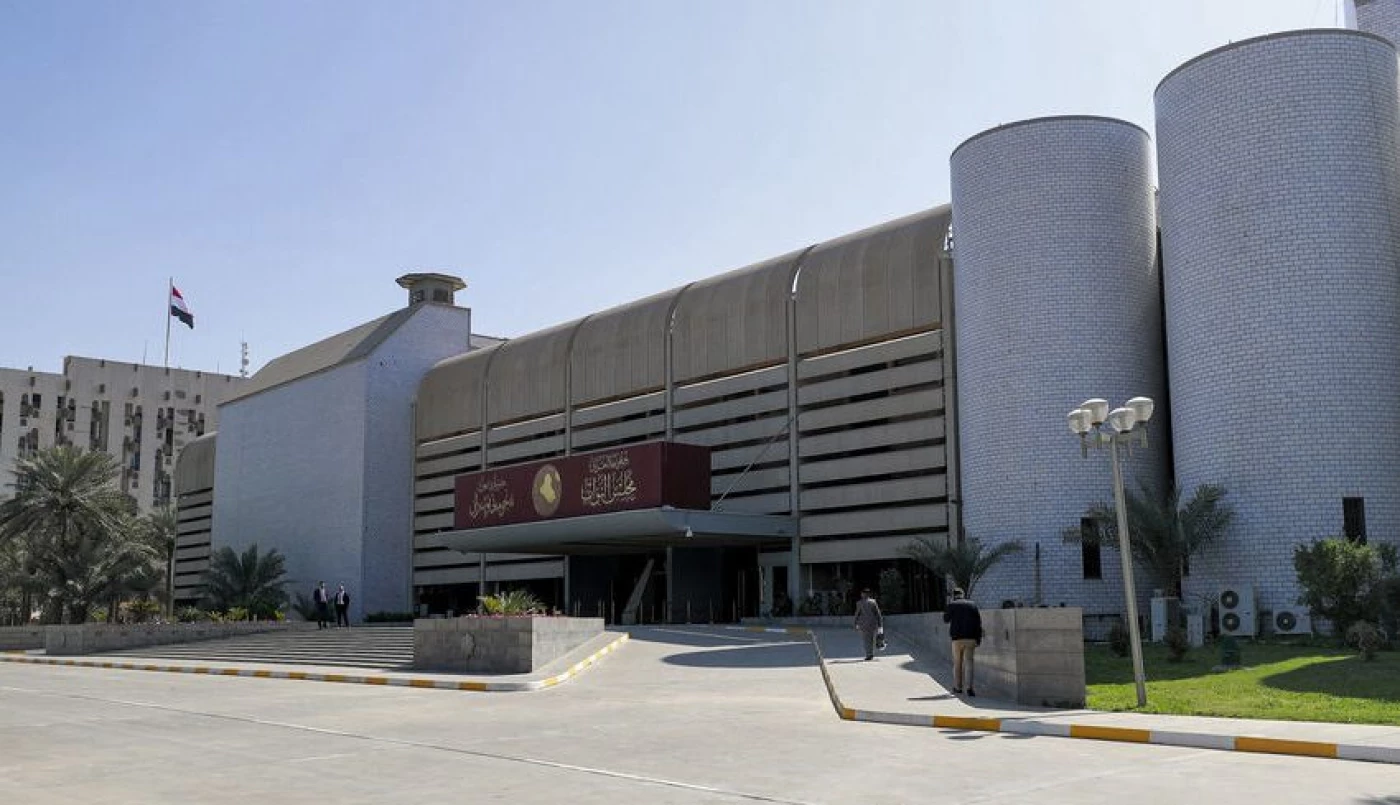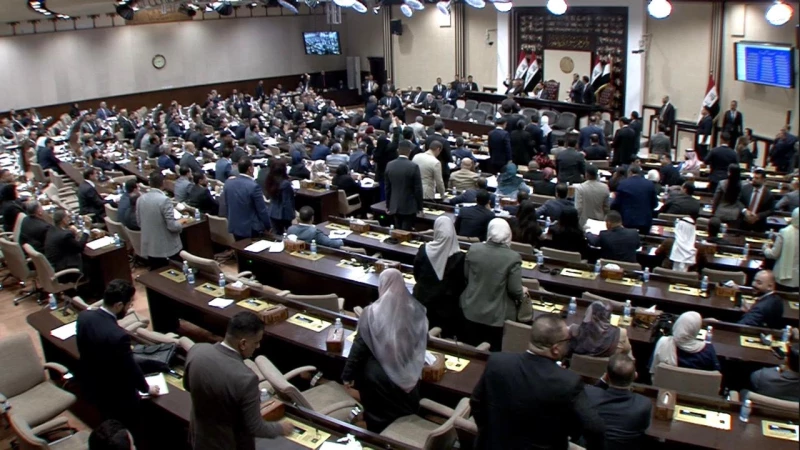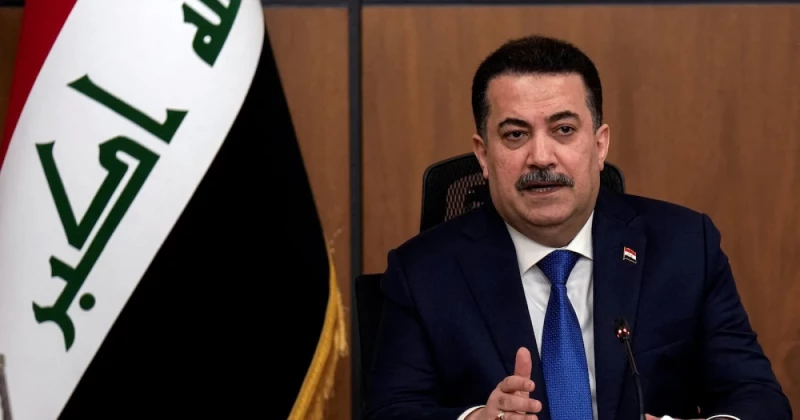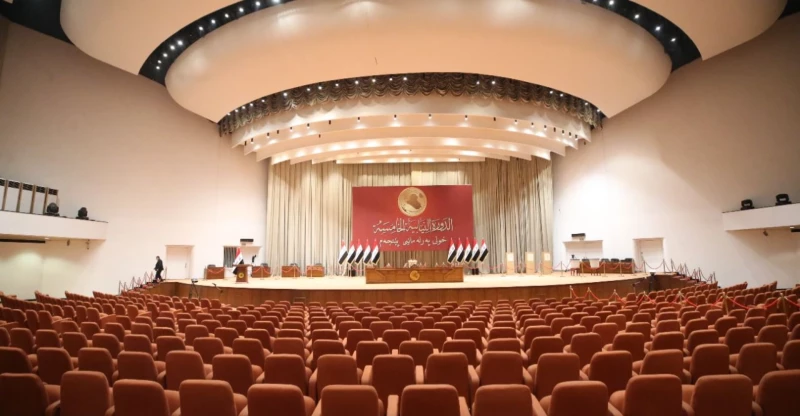ERBIL, Kurdistan Region of Iraq - The term ghost employees, is no longer limited to Iraq’s bloated bureaucracy. It now applies to the halls of the nation’s Parliament, the very body elected to represent the people.
Of 329 members of Parliament, 138 of them, despite taking the constitutional oath, have rarely fulfill their duties, according to data and lawmakers interviewed by The New Region. These lawmakers, referred to as ghost MPs, have disrupted parliamentary work by skipping sessions, delaying legislation, and collecting full salaries without being present.
Foreign Minister and Deputy Prime Minister Fuad Hussein recently confirmed that nearly 100 MPs had not attended a single session since taking the oath.
The phrase ghost employees in Iraq usually refers to two categories: those who collect government salaries but do not work and fake names inserted into payroll systems to collect money fraudulently. In the case of Parliament, the problem falls into the first group: real people, real salaries, and no work.
Parliamentary regulations require MPs to attend sessions as part of their official and national responsibilities. However, most meetings see fewer than 300 members present, and often far less.
Although internal rules give Parliament’s leadership authority to discipline absentee lawmakers, including warning them, cutting their pay, or even removing them from office, little action has been taken so far.
Chronic absences and public funds lost
Records from The New Region show just how widespread the problem has become.
At the fourth session on July 20, 2023, only 202 MPs were present. That number dropped to 200 in the fifth session on July 31. On August 3, 209 showed up, meaning 120 were absent, many of whom had missed previous sessions.
Just 180 MPs attended the August 16 session. On September 12, attendance improved slightly to 214. But on October 1, only 178 were present. At the 22nd session on October 15, 218 lawmakers were in attendance.
In two emergency sessions, November 15 and November 18, attendance was 198 and 171, respectively. In a rare move on February 1, 2024, Parliament’s leadership published a list of 125 MPs who were absent from a session that month. Most had missed several previous sessions, too. The crisis continued: On February 12, only 200 lawmakers attended. Two days later, on February 14, that number was 205.
In a session held on April 17, 2024, 166 lawmakers were absent, prompting parliamentary leadership to finally instruct the finance department to deduct one million dinars (about $760) from each absent member’s pay.
Former speaker blamed for hiding names
Madhar Jassem al-Saadi, head of the Parliamentary Observatory, said former Speaker Mohammed al-Halbousi set what he called a “dangerous precedent” by refusing to publish the names of absent lawmakers.
Speaking to The New Region, Saadi said average absenteeism during the fifth legislative term topped 100 MPs, sometimes reaching 138.
“Mohammed al-Halbousi started something that did not happen in previous parliaments, hiding the names of MPs who do not attend,” he said. “But the rules are clear: those names should be published.”
He confirmed that some MPs took the oath but never returned to Parliament.
“This is something Parliament’s leadership should be held responsible for,” he said, noting that several civic organizations are exploring legal options to hold current and former speakers including al-Halbousi, Mohsen al-Mandalawi and Mahmoud al-Mashhadani, accountable.
By law, the names of absent MPs should be posted on Parliament’s website and in an official newspaper. If a lawmaker misses one-third of sessions in a single term, they can be dismissed.
Despite this, absentee MPs continue to collect full salaries, with no penalties imposed, Saadi said. He described the fourth and fifth parliamentary terms as the worst in terms of discipline and legislation.
Lawmakers share the blame
MP Mohammed Anouz, a member of the parliamentary legal committee, told The New Region that both leadership and fellow lawmakers are to blame for the ongoing problem.
“MPs have been skipping sessions since this parliamentary term began,” he said. “Only one session had 311 MPs present. The rest have ranged between 170 and 190.”
Anouz said the names of absentee lawmakers should be published in newspapers so voters can track whether their elected representatives are doing their jobs.
“Everyone shares the blame,” he said. “Leadership was elected by MPs, so they can’t escape responsibility either.”
He also called for a constitutional referendum after the next election to change quorum requirements.
Currently, decisions are made based on the number of lawmakers present, with Anouz suggesting requiring a two-thirds quorum to elect the president and having decisions made by a majority of all MPs, not just those who show up.
System ‘scattered and weak’
The conduct of many MPs does not reflect the seriousness of the challenges Iraq faces, Ghazi Faisal, head of the Iraqi Center for Strategic Studies, said, backing Foreign Minister Hussein’s remarks about ghost MPs and said the numbers were supported by official data.
“Parliament is the top authority in Iraq, even more important than the presidency or the prime minister’s office,” Faisal said. “But many MPs are not taking their responsibilities seriously.”
He said no other parliament in the world behaves like Iraq’s, criticizing lawmakers for taking time off for personal travel or religious pilgrimages while neglecting their duties to the public.
“MPs act like they’re there for personal gain,” he said. “I haven’t seen anyone focus on hunger, poverty, unemployment or slum housing.” Faisal also argued that Parliament’s internal rules lack proper mechanisms to hold MPs accountable or ensure attendance.
He said roughly 50 laws that should have been passed by now remain stalled.
What can be done legally?
Legal expert Ali al-Tamimi outlined six legal pathways for dismissing absentee lawmakers.
“Article 18 of the internal regulations says attendance records must be posted on Parliament’s website and in a newspaper, and that absent MPs without an excuse must be warned,” Tamimi told The New Region.
If a lawmaker misses five consecutive sessions or 10 sessions in total during one term, Parliament can vote to remove them by an absolute majority, meaning more than half of all 329 MPs.
Under the Replacement Law (Law No. 49 of 2007), the vacant seat is filled by a candidate from the same electoral list, selected based on who had the next highest number of votes, known as the “best runner-up.” This rule was confirmed by the Federal Supreme Court’s interpretation of Article 46 of the 2020 Election Law.
Tamimi also said that skipping sessions after taking the constitutional oath violates Article 50 of the Constitution and may be considered perjury under Article 258 of the Penal Code.
Whether absence is by one MP or many, it can be addressed under the replacement law, and any challenges can be appealed to the Federal Court. One-third of MPs can also request a vote from the Speaker to dismiss absent colleagues. If a majority of all MPs vote in favor, replacements are appointed using the same rules.
Article 52 of the Constitution allows for dismissing MPs who lose eligibility, but that process must be preceded by a formal warning from the Speaker, to ensure due process.



 Facebook
Facebook
 LinkedIn
LinkedIn
 Telegram
Telegram
 X
X


